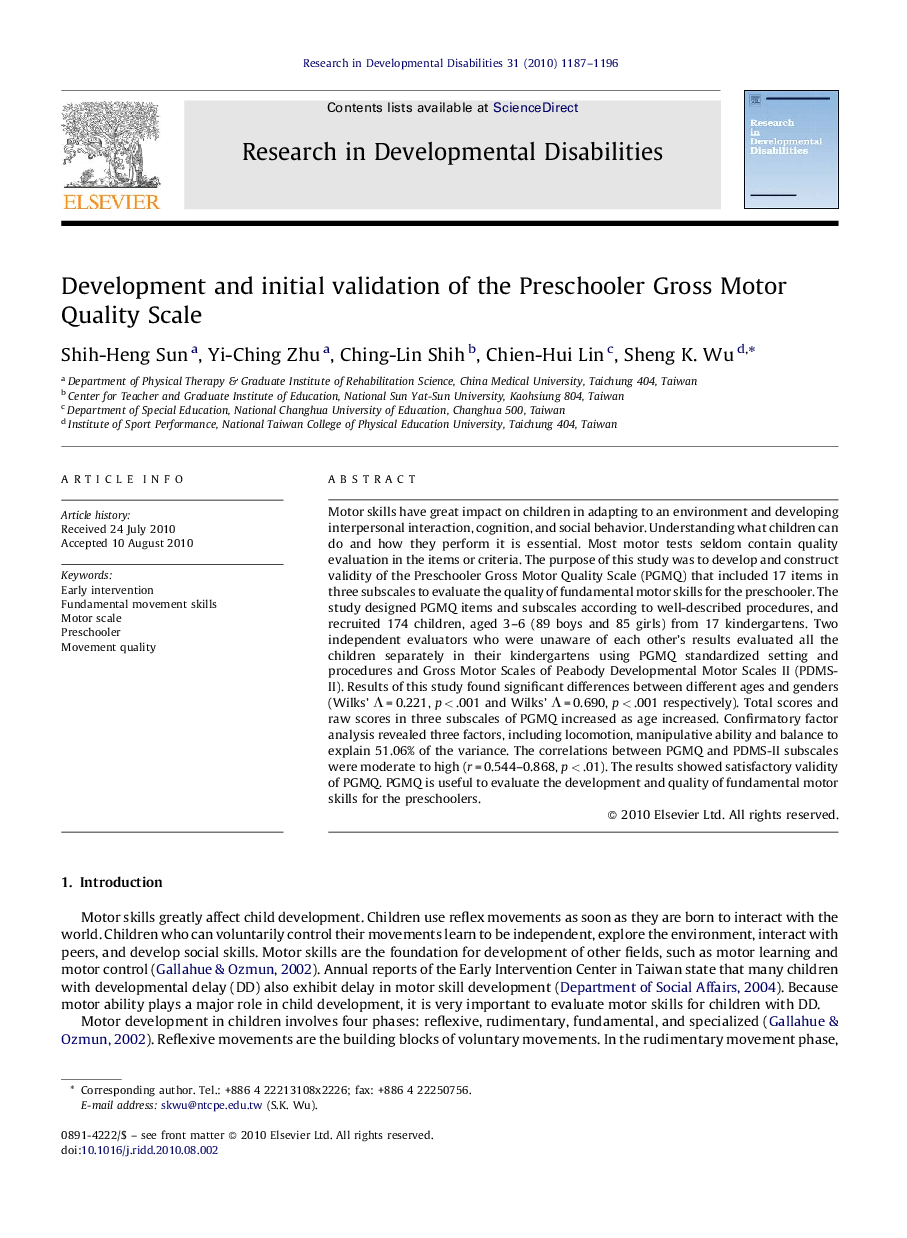| Article ID | Journal | Published Year | Pages | File Type |
|---|---|---|---|---|
| 10318258 | Research in Developmental Disabilities | 2010 | 10 Pages |
Abstract
Motor skills have great impact on children in adapting to an environment and developing interpersonal interaction, cognition, and social behavior. Understanding what children can do and how they perform it is essential. Most motor tests seldom contain quality evaluation in the items or criteria. The purpose of this study was to develop and construct validity of the Preschooler Gross Motor Quality Scale (PGMQ) that included 17 items in three subscales to evaluate the quality of fundamental motor skills for the preschooler. The study designed PGMQ items and subscales according to well-described procedures, and recruited 174 children, aged 3-6 (89 boys and 85 girls) from 17 kindergartens. Two independent evaluators who were unaware of each other's results evaluated all the children separately in their kindergartens using PGMQ standardized setting and procedures and Gross Motor Scales of Peabody Developmental Motor Scales II (PDMS-II). Results of this study found significant differences between different ages and genders (Wilks' Π= 0.221, p < .001 and Wilks' Π= 0.690, p < .001 respectively). Total scores and raw scores in three subscales of PGMQ increased as age increased. Confirmatory factor analysis revealed three factors, including locomotion, manipulative ability and balance to explain 51.06% of the variance. The correlations between PGMQ and PDMS-II subscales were moderate to high (r = 0.544-0.868, p < .01). The results showed satisfactory validity of PGMQ. PGMQ is useful to evaluate the development and quality of fundamental motor skills for the preschoolers.
Related Topics
Life Sciences
Neuroscience
Behavioral Neuroscience
Authors
Shih-Heng Sun, Yi-Ching Zhu, Ching-Lin Shih, Chien-Hui Lin, Sheng K. Wu,
